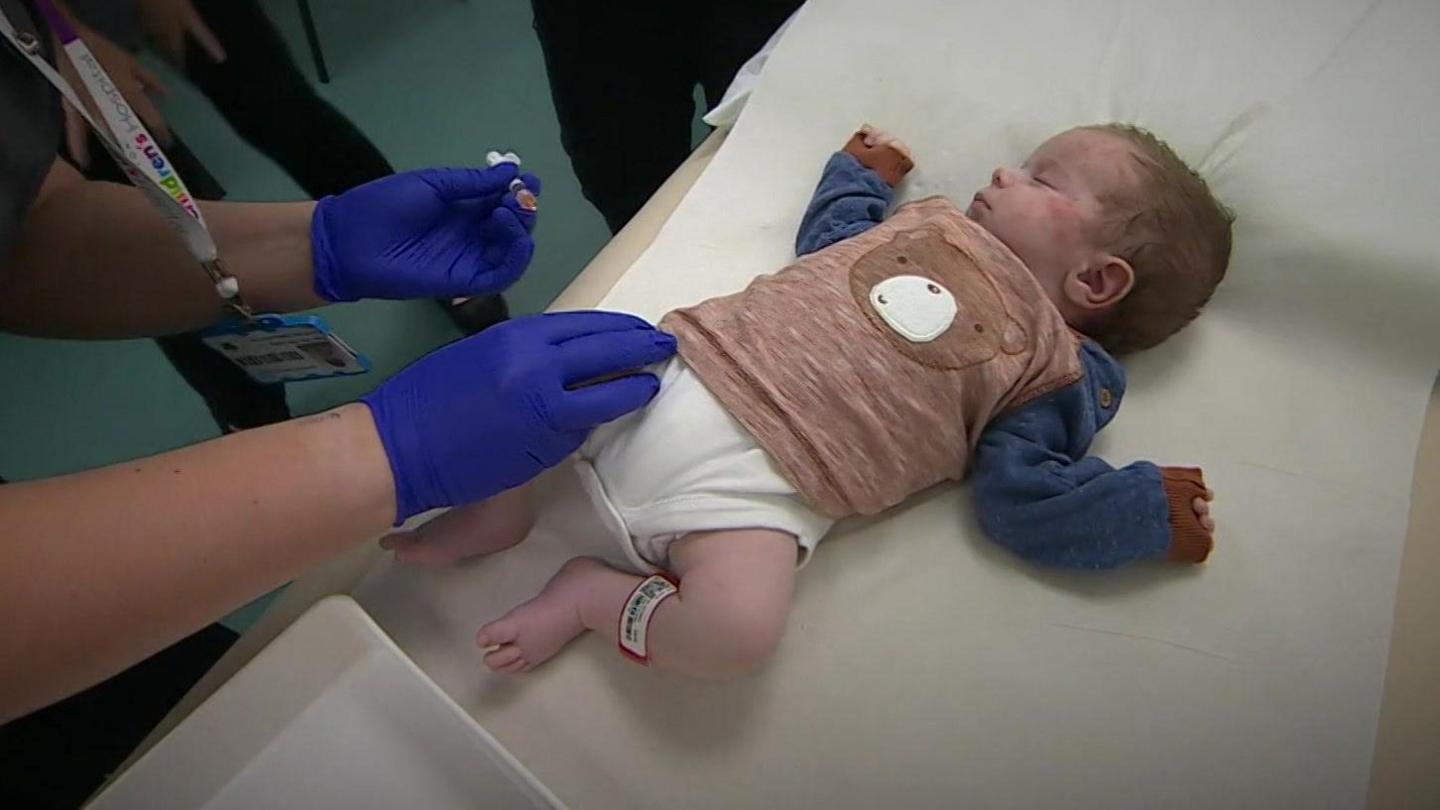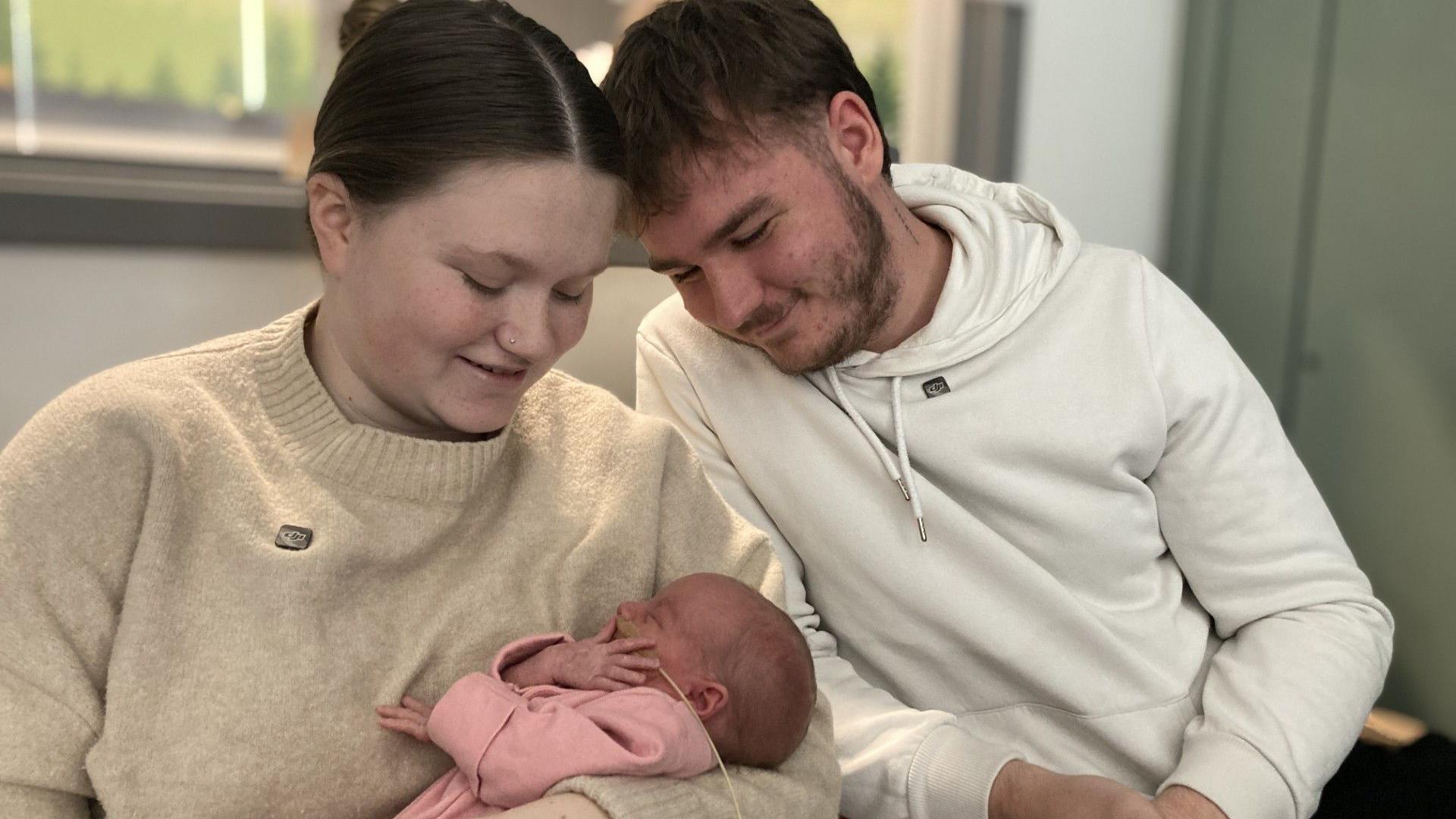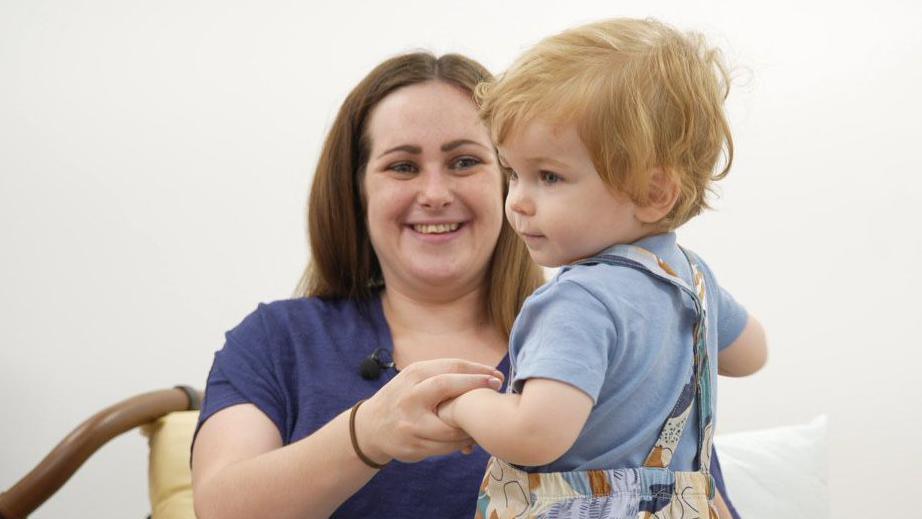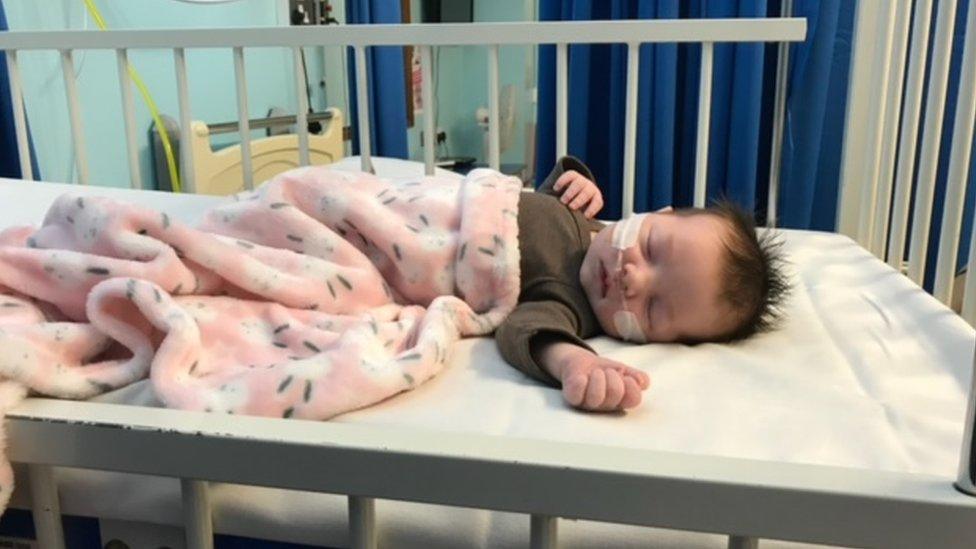New drug protecting premature babies this winter

A successful trial conducted in 2022 on babies like Harry has led to the rollout of a new drug
- Published
Three years ago, baby Harry took part in a trial that could help thousands of newborns fight off a life-threatening virus this winter.
A successful trial carried out at University Hospital Southampton means the injection is now available for high-risk premature babies, and Harry and his mother Ceri have been able to meet one of the beneficiaries, newborn Elowyn.
NHS England has rolled out the drug Nirsevimab to provide protection against respiratory syncytial virus (RSV), which puts about 7,000 infants at risk every year.
Dr Simone Paulson said the hospital thanks all the participants who ensured the most vulnerable babies get "the best possible protection against RSV this winter".

Premature baby Elowyn's parents are delighted she has been able to receive the injection
Elowyn's mother, Molly, said she is grateful to Harry and the other trialists because "if they didn't happen then we wouldn't have had the chance to give her (Elowyn) the extra protection".
A jab that can be given to pregnant women was introduced last year but it doesn't cover some babies who are born prematurely.
Nine out of 10 children will get RSV before the age of two, but in most cases it is not diagnosed as the symptoms present as a cough or a cold.
The trial was supported by the National Institute for Health and Care Research (NIHR) and now Nirsevimab – which offers six months' protection in a single dose – will replace monthly injections of palivizumab, previously offered to a smaller number of vulnerable babies.
According to clinical trial data, external, palivizumab provides about 55% protection while Nirsevimab offers more than 80% protection against the virus.
"We know that preterm babies are a particularly vulnerable group" said Dr Paulson, who works at University Hospital Southampton.
"They've got underdeveloped lungs, they've got immature immune systems, both of which make them particularly susceptible to really severe infections."
Who is at risk from RSV?
According to the NHS, infections of RSV are very common. They're not usually serious, but some babies and adults have a higher risk of getting seriously ill, particularly:
Babies under six months old
Premature babies
Adults over 75
People with a weakened immune system, or long-term lung or heart conditions
People who smoke tobacco and babies exposed to tobacco smoke
The NHS says: "In babies, RSV is a common cause of a type of chest infection called bronchiolitis.
"This can cause breathing problems and may need to be treated in hospital. RSV can also cause a serious lung infection (pneumonia) in babies and older adults."
Get in touch
Do you have a story BBC Hampshire & Isle of Wight should cover?
You can follow BBC Hampshire & Isle of Wight on Facebook, external, X (Twitter), external, or Instagram, external.
- Published19 July

- Published10 November 2022
